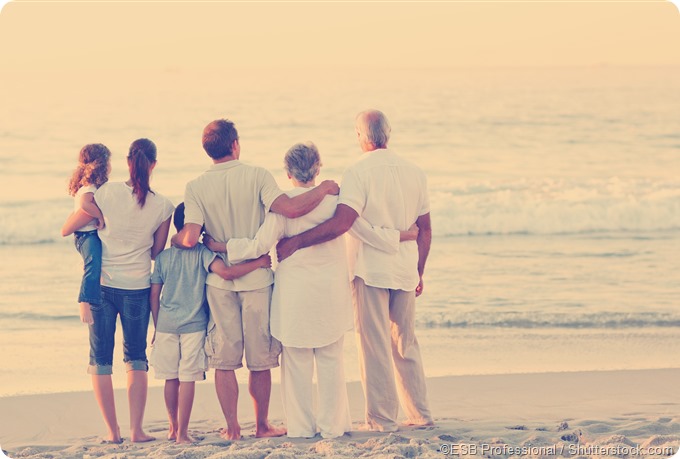Being a parent could increase the likelihood of living longer once people are in their later years, say researchers.
In a study of almost 1.5 million individuals in Sweden, the researchers found that parenthood was associated with a longer life expectancy than childlessness was among people aged between 60 and 100 years.

Authors of the study Karin Modig (Karolinska Institutet, Stockholm, Sweden) and colleagues believe that the effect may be linked to children supporting and caring for their aging parents.
As reported in Journal of Epidemiology & Community Health, Modig and team used national registry data to follow 704,481 men and 725,290 women living in Sweden who were born between 1911 and 1925 and tracked their lifespan from the age of 60 onwards. The team calculated age-specific risks of death for each calendar year and compared them between people who had had at least one child and those who had not had a child.
After accounting for potential influential factors such as education level, children’s sex, marital status and number of children, the risk of death was lower among people who had had at least one child than it was for people who had not had any children. Furthermore, this benefit became more pronounced with increasing age.
The study also revealed that the increased risk of death was more pronounced among men than it was among women. For 60 year old men who had had children, the remaining life expectancy was almost two years longer than for men of the same age who had not been parents, at 20.2 years and 18.4 years respectively. For women of the same age, the corresponding figures were 24.6 years and 23.1 years. By the age of 80, male parents had a life expectancy of 7.7 years, compared with 9.5 years for female parents, while childless males had a life expectancy of 7 years and childless females a life expectancy of 8.9 years.
Modig and team also found that unmarried male parents had a longer life expectancy than married male parents. The researchers say this could be because men are more likely to turn to their children for physical care and emotional support if they do not have a partner.
Modig says that while it may be the case that having children is linked to increased longevity, it is certainly not the only factor to influence longevity. The authors also point out that their study is observational and cannot be used to draw any firm conclusions in terms of cause and effect.
Sources
https://www.theguardian.com/science/2017/mar/14/parenthood-can-help-you-live-longer-in-older-age-research-suggests
https://www.eurekalert.org/pub_releases/2017-03/b-plt031017.php